How to attract frogs to your yard – and why they are ideal for natural pest control
Experts share their top tips on how to encourage frogs to make a home in your backyard

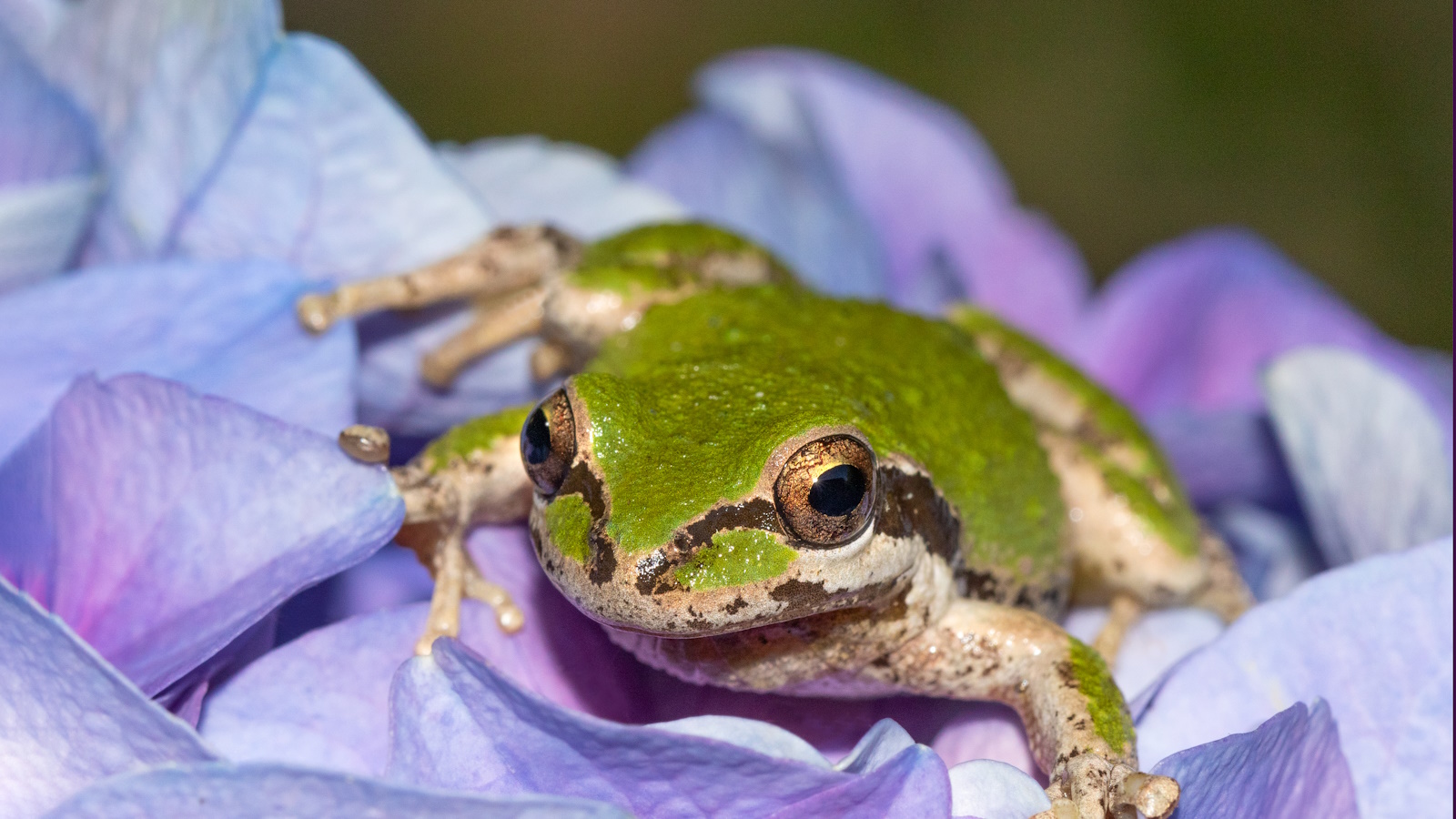
Frogs are captivating creatures that can play an important role in establishing a healthy ecosystem in your backyard.
In the same way that knowing how to attract bees and ladybirds to your backyard is hugely beneficial, frogs too play a crucial role. Adult frogs and toads are amphibians that primarily feed on insects. In fact, a frog can consume more than 10,000 insects every year, including slugs, snails, mosquitos and caterpillars, making them an efficient form of natural pest control.
If your aim is to transform your backyard space into a beguiling nature retreat, or you are simply searching for natural methods of controlling those plant-eating slugs, maybe it's time to find creative ways to invite frogs into your yard this season.
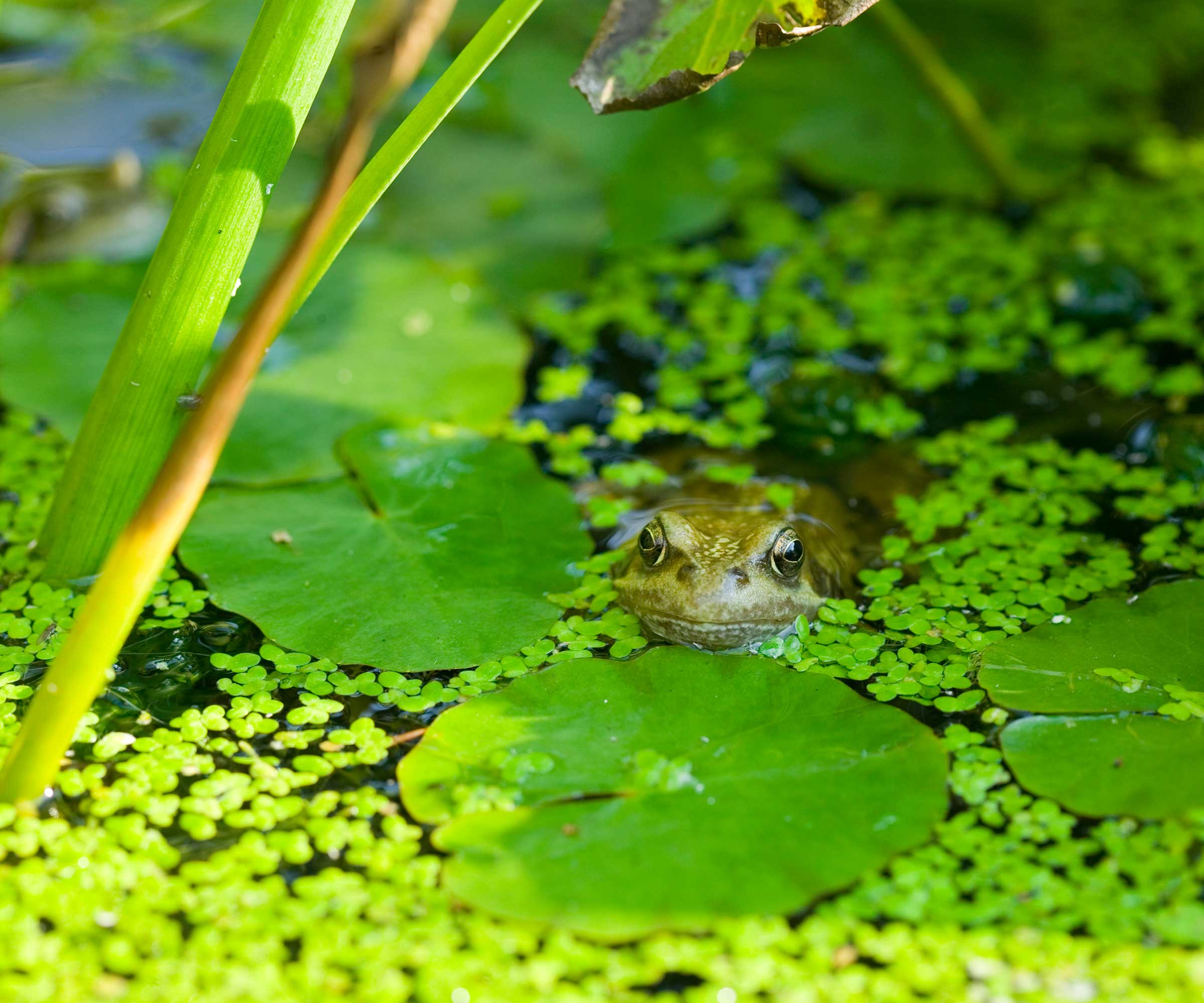
How to attract frogs to your yard
By attracting frogs to your yard, not only are you benefitting your garden ecosystem, but also helping combat their declining numbers. With many people choosing to fill in garden ponds, frog populations are declining due to a loss of breeding habitats.
Try these expert methods to help introduce frogs into your yard, so you can reap the many non-toxic pest control benefits they can bring.
Provide frogs with a pond or smaller water source
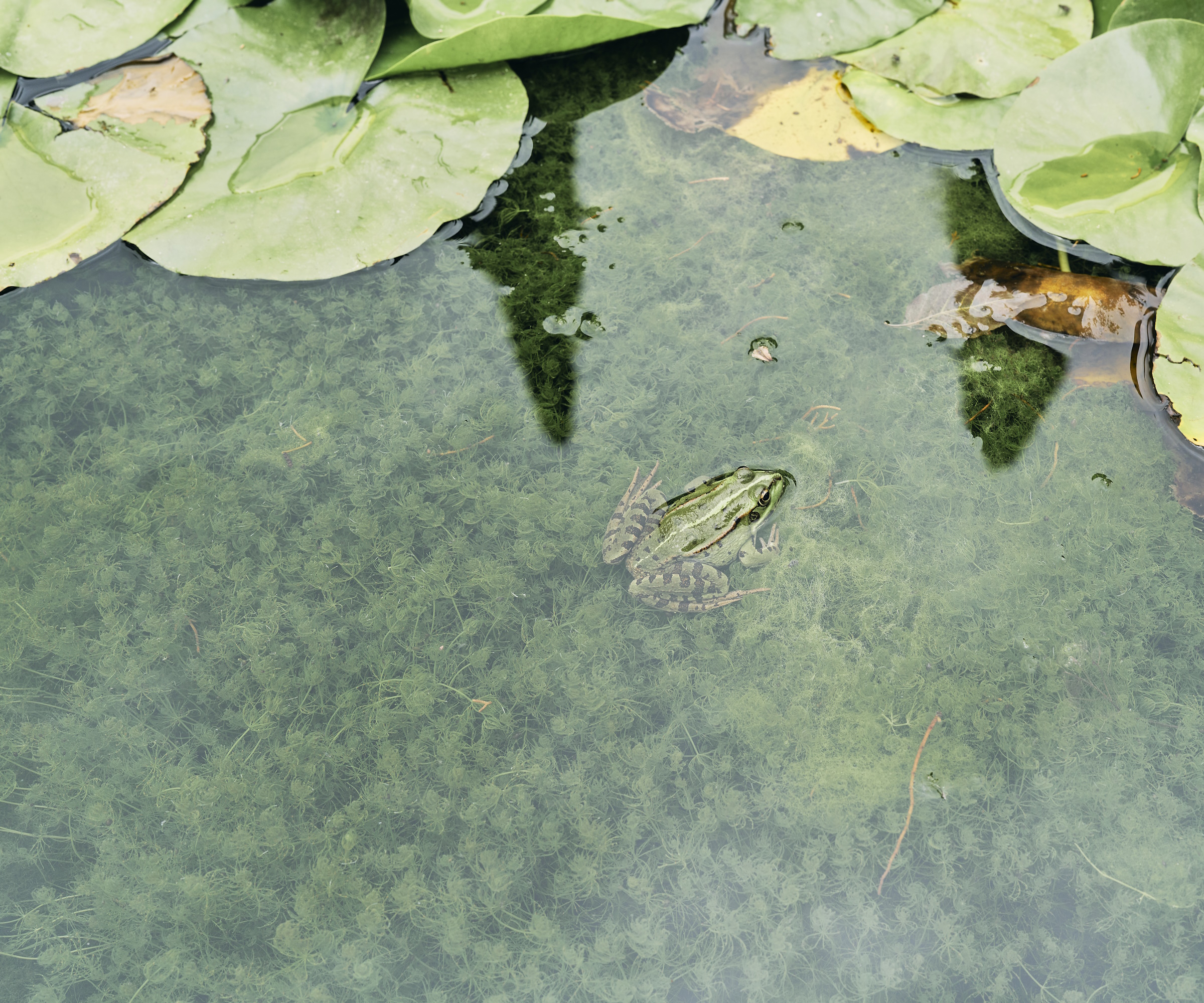
The best way to attract frogs into your garden is to provide water sources for them. Garden pond ideas are an obvious go-to. A shallow pond that also has items like rocks and logs for frogs to rest on, and will provide an accommodative home for them.
If you don't already have a pond in your yard, you could learn how to build a pond, or try adding a fountain or smaller water feature to an area of your garden. A water source will also attract insects, which will make the area even more enticing for frogs.
Design expertise in your inbox – from inspiring decorating ideas and beautiful celebrity homes to practical gardening advice and shopping round-ups.
Ben Team, a wildlife expert, states that 'frogs will need the water to be at varying depths, with the deepest parts around two feet. By providing different depths, the frogs can strive at all stages of their life cycle.
'Sometimes it's as basic as repurposing an old container or birdbath - just keep it topped up with fresh water and you will create an instant frog breeding ground,' Ben continues.
Surrounding it with dense vegetation like evergreen shrubs, ornamental grasses, and leafy groundcovers provides those coveted humid, shady hideaways that frogs need during daylight hours.

A lifelong environmental educator and the former executive director of a nature reserve, Ben has led more than 10,000 miles of guided nature hikes, authored more than 40 animal care books, and has been profiled in a variety of media outlets, including local public television, County Line Magazine, and Disney Radio.
Provide frogs with shelter
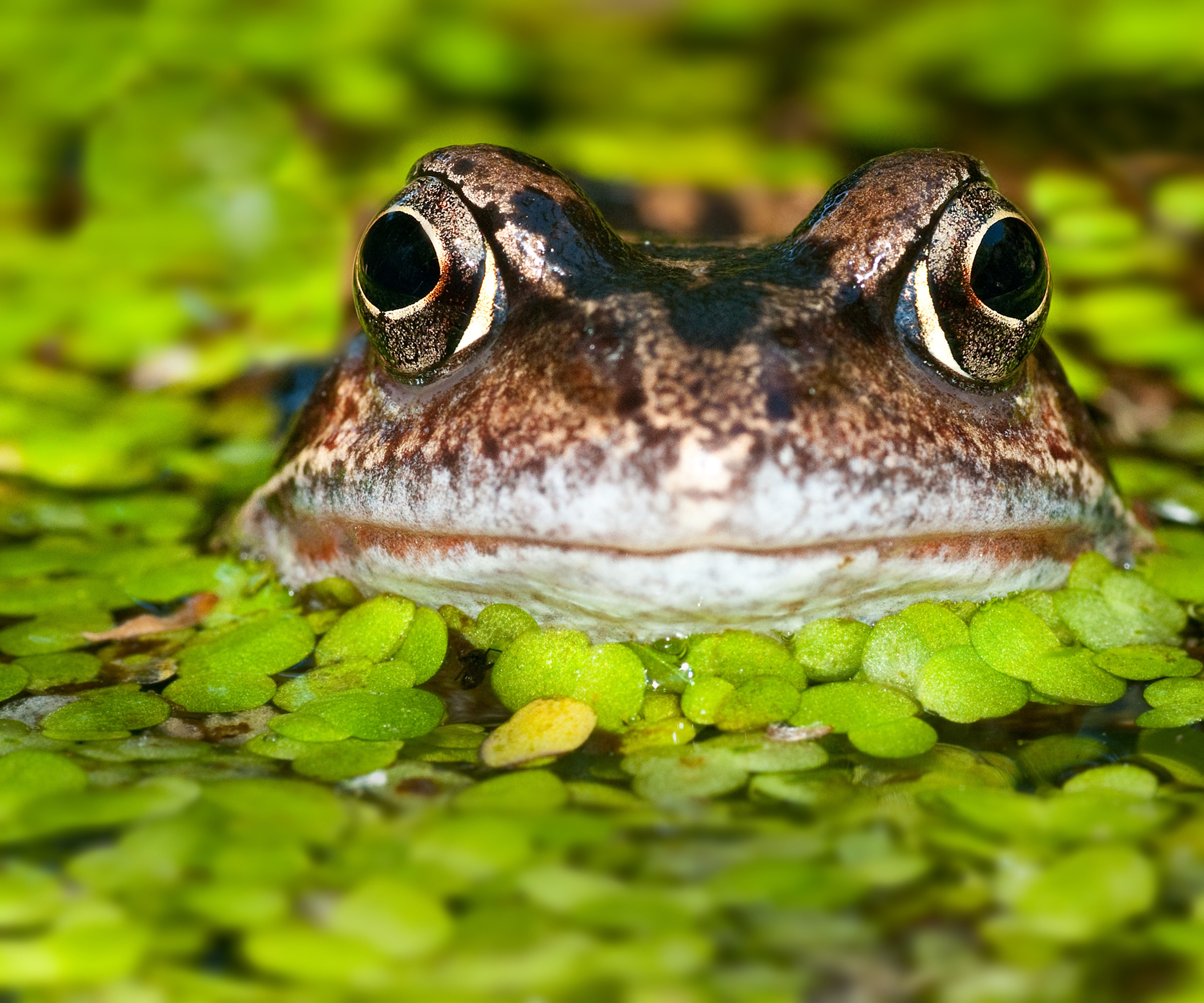
One of the best ways to attract frogs to your yard is by providing many forms of shelter for frogs to inhabit. This could be an upturned terracotta pot, such as these from Amazon, wooden boxes, and large piles of leaves.
Peter Gros, wildlife expert and co-host of Mutual of Omaha's Wild Kingdom, recommends in order to build an efficient frog shelter you need to 'partially bury it and fill the interior with damp leaves and sphagnum moss, which replicates their preferred damp, secluded shelters'.
You can take your frog shelter one step further by creating a winter frog habitat, or a hibernaculum, for when frogs hibernate from winter to spring. Add old logs and rubble on top of some well-drained soil such as the all-purpose organic potting soil from Organic Mechanics and 100% natural cedar shavings from Amazon. Finally, cover your hibernaculum in more soil to keep the warmth in when the cold weather arrives.

Peter Gros is a veteran wildlife expert who shares his love for wildlife and wilderness with families and children throughout the country. He has nearly 30 years of field experience with wildlife and has been a part of Mutual of Omaha’s Wild Kingdom since 1985.
Avoid using pesticides to create a safe habitat for frogs
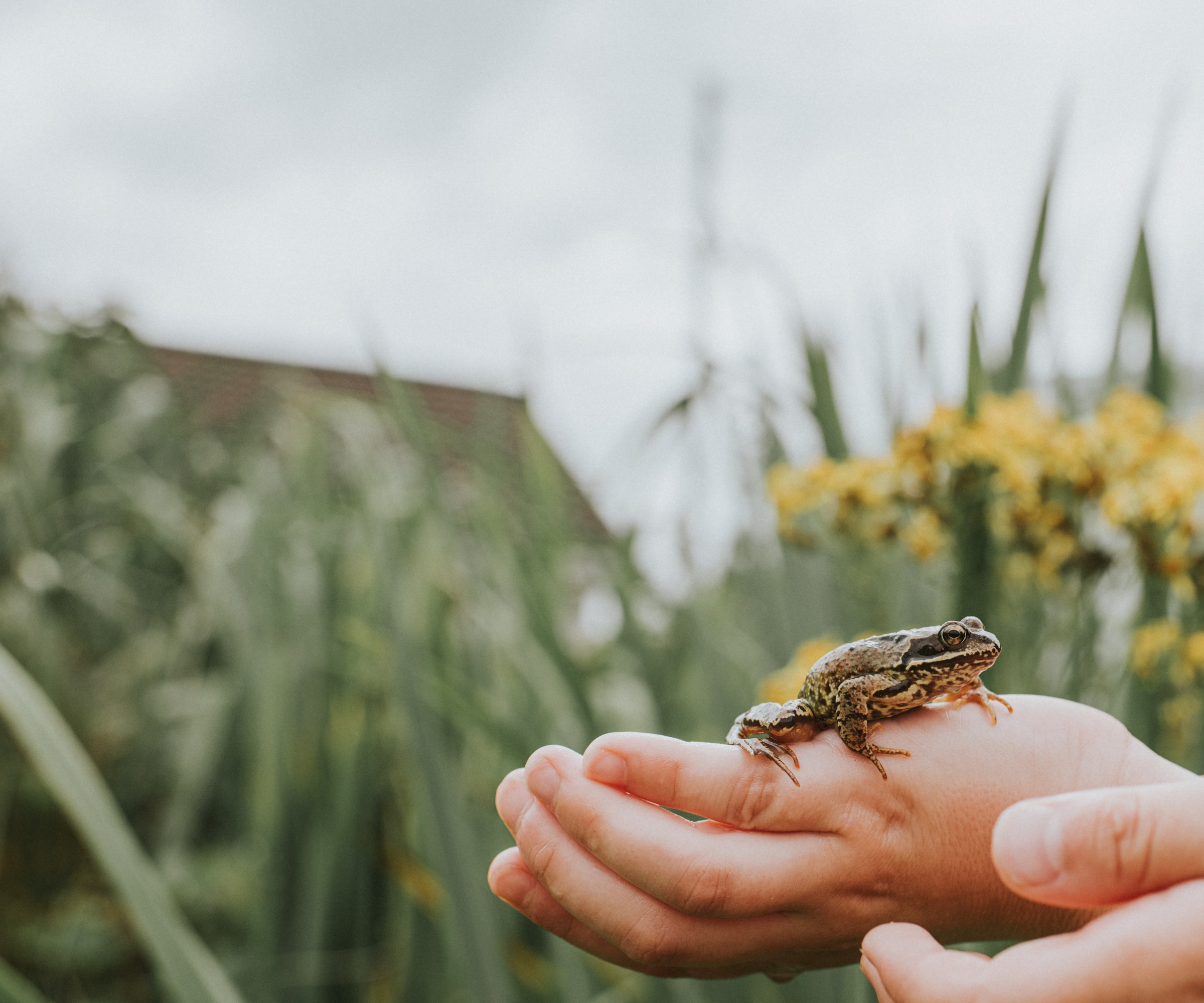
It's really important to try and avoid chemical pesticides entirely when attracting frogs to your yard. Instead try using natural compost from Amazon, mulches and fertilizers, as they are essential for sustaining that frog-friendly paradise.
If you have a severe pest issue on some of your plants, consider using a homemade bug spray, which includes neem oil. Neem oil such as Verdana Organic cold pressed neem oil from Amazon is a great initial deterrent to many bugs and pests, whilst still being safe to other insects including butterflies and ladybugs.
FAQs
Can you have frogs in your yard without a pond?
Whilst it may be difficult or take longer to introduce frogs into your yard without a pond it can happen. Adult amphibians spend a lot of time out of the water, especially during fall and winter, preferring sheltered places to ponds until the following spring.
You can also incorporate certain plants to your yard that will help attract frogs. They like water lilies, which provide frogs with a place to rest and bask in the sun. Other pond plants such as water lettuce and duckweed will help attract frogs by providing shade and protection from predators.
Finally, remember to be patient. Attracting frogs to your yard may take some time as they will need to discover your habitat and make themselves comfortable.

Seraphina is a contributing editor at Homes & Gardens, writing Solved features on organizing and storage. She loves to decorate and also grow her own produce from her home in London. Her previous experience includes working at Women's Health and Fabulous Magazine.